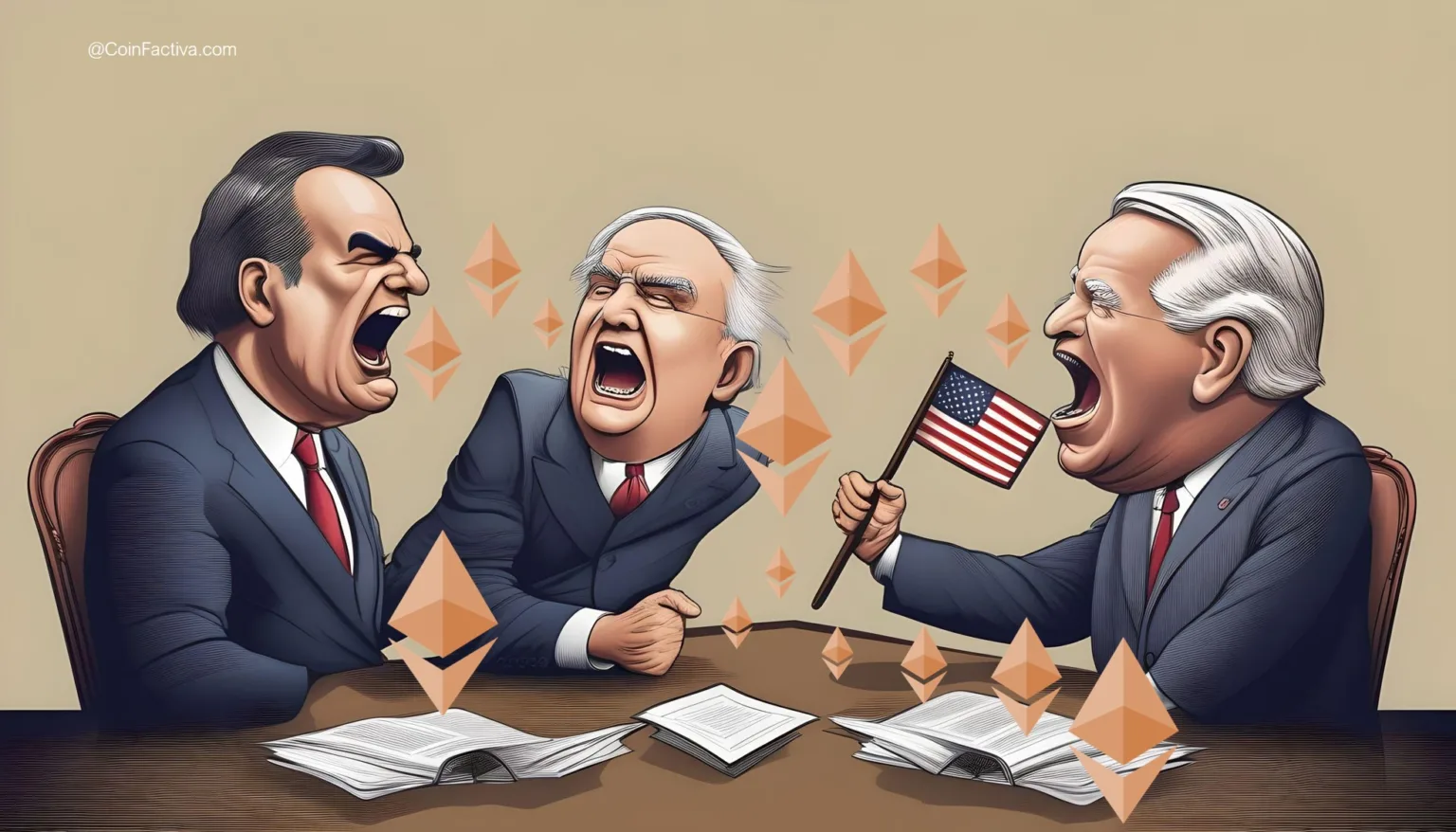Bitcoin ETFs and their Approval in the USA were the Big Topic in the Crypto Market in the Second Half of 2023. This Week, Somewhat Surprisingly, Ethereum ETFs Followed.
But What Exactly Did the SEC Decide, What Are the Backgrounds, and How Did the Market React?
The Price Board: All data is sourced from coingecko.com and is accurate as of Friday morning.
😮 The U.S. SEC’s Reversal on Ethereum ETFs
It was already hinted at, but not with much lead time: The U.S. Securities and Exchange Commission (SEC) has indeed approved Ethereum spot ETFs for the first time. Until a few days ago, leading experts believed that the existing applications from several major asset managers would likely be rejected by the May deadline. Approval was not expected to be realistic before September.
But this week, a sudden reversal: early in the week, the two respected Bloomberg ETF analysts Eric Balchunas and James Seyffart suddenly increased their predicted probability of approval in May from 25% to 75%. “We heard this afternoon that the SEC might be making a reversal (it’s becoming an increasingly political issue),” Balchunas wrote on Monday morning on X, formerly Twitter.
This caused a huge stir: after all, his colleague Seyffart had commented on an approval in May with “Won’t happen – sorry, folks!” in a tweet.
Since mid-2023, when the discussion around Bitcoin spot ETFs in the USA really took off, the tweets from Balchunas and Seyffart have been closely followed in the crypto scene. The two Bloomberg analysts have earned a reputation as reliable sources, and it was clear: if they make such a drastic change in their forecasts, there must be something behind it.
🤔 Eight ETF Applications Approved – Or?
On Thursday evening, it finally happened: the SEC approved the following applications: Grayscale Ethereum Trust, Bitwise Ethereum ETF, iShares Ethereum Trust (BlackRock), VanEck Ethereum Trust, ARK/21 Shares Ethereum ETF, Invesco Galaxy Ethereum ETF, Fidelity Ethereum Fund, Franklin Ethereum ETF.
However, a caveat: technically, the SEC approved amendments requested from the applicants on Monday. In legal terms: the SEC approved 19b-4 documents, not yet the S-1 documents necessary for trading approval. This means: yesterday’s decision differs from the Bitcoin ETFs in early January, which were tradable the following day.
The approval of the S-1 documents could take several weeks or even months. However, the two Bloomberg analysts consider this to be merely a formality. While the process usually takes several months, it could go faster in this case. More information will be available soon, wrote Seyffart.
🧐 But What’s Behind It?
The rapid decision came somewhat unexpectedly. The SEC and its chairman Gary Gensler have positioned themselves very critically towards the entire crypto industry, particularly in the past one and a half months. Even the approval of Bitcoin spot ETFs took quite some time and may have been accelerated only by the court defeat in the Grayscale case. Regardless, there was no automatism in the sense of: if Bitcoin ETFs are approved, Ethereum ETFs must also follow soon. The current SEC chairman, Gary Gensler, is notorious in the industry for his opinion that almost all crypto assets should be classified as securities under U.S. law (and thus go through a registration process with the SEC).
Gensler has always explicitly excluded only Bitcoin. However, he has avoided or even more or less clearly hinted the opposite regarding Ethereum. Gensler himself has not yet commented on the decision. But why the SEC’s reversal now? This can only be speculated. Bloomberg analyst Balchunas has already been quoted above as saying that the matter has increasingly become a political issue. The presidential election campaign in the USA, which will be held in November, is becoming more and more noticeable. Democrat Gary Gensler was appointed by U.S. President Joe Biden in April 2021.
He is comparatively radical on the crypto issue. The SEC has a much stricter approach to the crypto industry than the Commodity Futures Trading Commission (CFTC), which regulates futures and options markets. It is increasingly evident that a more cautious approach is becoming more popular even within the Democrats. The assumption seems to be that a hard stance against crypto will alienate more voters than it will attract. This is quite plausible: the group of people for whom crypto plays a significant role in their voting decision is small compared to the total population.
But it is large enough that you don’t want to completely alienate them. On the other hand, there are likely to be very few people for whom a hard stance against the crypto industry is so important that they would stop voting for Biden if he adopts a somewhat looser approach on the issue. And how did the market react? Hardly at all to the immediate announcement. Compared to the previous day, the Ether (ETH) price is even down. However, the decision had already been priced in since Monday. Accordingly, there is a 7-day gain of more than 20%.

